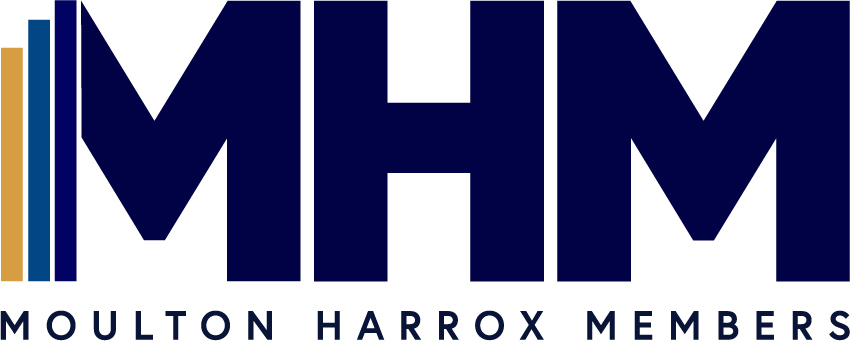- This topic has 2 replies, 1 voice, and was last updated January 31, 2024 at 7:27 am by
 Nick Hargrave.
Nick Hargrave.
-
CreatorTopic
-
December 4, 2023 at 3:02 pm #5811
 Nick HargraveKeymaster
Nick HargraveKeymasterAIM listed. Ticker: DEST
Market cap: £64mDEST is tackling the increasingly important health concern and economic burden of anti-microbial resistance (“AMR”) through the development of anti-infectives to address infection prevention. The company has 2 late-stage, phase 3 ready products targeting unmet needs: NTCD-M3 for prevention of C. difficile and XF-73 Nasal for prevention of post-surgical S. aureus infections such as MRSA. Surgical site infections are a major cause of patient morbidity and mortality while hospital-acquired S. aureus Infections in the US, for example, carry up to a $165K/patient treatment cost with up to 40m major surgeries per year at risk.
NTCD-M3 is already funded through phase 3 development and North America commercialisation by Sebela Pharma with estimated peak sales $500m. This agreement has a deal value of up to $570m + royalties. XF-73 meanwhile, is completing Phase 2b trials and targets a $2bn peak sales opportunity in the US alone and the company is in active partnering discussions with multiple parties where a deal could be announced at any time.
Clostridioides difficile infection (CDI) is a bacterial infection of the large intestine causing an annual $6bn healthcare burden in the US.. NTCD-M3 is a naturally occurring non-toxigenic strain of C. diff bacteria that is effective in preventing toxic strains of C. diff proliferating in the colon after antibiotic treatment,
preventing CDI recurrence. Clinical data demonstrated a 5% recurrence rate vs 30% recurrence in placebo in the Phase 2 trial, compared to marketed and development stage products with recurrence rates of 11-25%.XF-73 is a nasal gel for post-surgical S. aureus infection prevention. Nasal decolonisation before surgery reduces the risk of post-surgical infection by 60% and XF-73 has demonstrated 99.5% eradication of S. aureus in 24 hours prior to surgery. With its fast mechanism of action, it offers greater efficacy with less resistance risk while increasing patient compliance where current decolonisation strategies require dosing over several days prior to surgery. It’s latest publication of trial data is compelling – https://otp.tools.investis.com/clients/uk/destiny_pharma_ltd2/rns/regulatory-story.aspx?cid=2241&newsid=1726154
To drive forward the commercialisation of the products the company recently appointed an experienced CEO, Chris Tovey. From his appointment announcement “Chris is a highly experienced, senior pharmaceutical executive. He was most recently COO, Executive Vice President, and Managing Director of Europe and International at Jazz Pharmaceuticals following the acquisition of GW Pharmaceuticals (GW), where he served as COO, EVP, and a board director. Thus, Chris was a key part of the GW team that oversaw the significant growth and success of the organisation prior to Jazz’s $7.2bn acquisition of the company. Prior to GW, Chris held multiple senior commercial roles in the industry including VP and Head of Global Sales and Marketing at UCB Pharma and 18 years in senior commercial roles at GlaxoSmithKline in a wide range of therapeutic areas.”. He has stated he joined DEST mostly for the potential for XF-73. To quote him “The potential of XF-73 nasal is one of the reasons I was motivated to join Destiny Pharma in its mission to reduce the emergence and impact of drug resistant pathogens with preventative solutions. The innovative XF platform includes a blockbuster, $2bn plus opportunity in the US alone, but has also shown utility beyond surgical site infections to address fungal and dermal infections as well. Most importantly, it has the potential to play an essential role in protecting vulnerable patients, and in doing so, save lives.”
The business is currently funded through to Q1 25 following a £7.3m equity raise in Mar-23 at 35p per share, in the absence of any up-front payments from a XF-73 deal. As with all development bio-tech companies, risks of clinical trial failure, commercialisation and funding are not inconsequential risks, making biotech a sector where few opportunities offer a compelling enough risk/reward profile to make MHM’s watchlist. To date, Avacta is the only other biotech in the Model Portfolio and we draw comparisons of clearly differentiated performance vs. standard of care during trials, significant commercial opportunities and likely high interest from a range of large pharma partners. The Sebela agreement for NTCD-M3 likely justifies the current valuation on its own (market cap is c.14% of the $570m deal value, excluding royalties), with XF-73 expected to be even more valuable should it successfully complete trials. As an initial view on valuation, we consider the NTCD-M3 $570m deal value, assume XF-73 partnering is similar despite a potentially larger value and assign a 25% probability of success for both given their late-stage development status. As more financial and commercial information becomes available, we will look to model out reasonable projections to drive a more informed view on valuation beyond the significant discount to current and potential licensing deal values.
-
CreatorTopic
-
AuthorReplies
-
-
January 31, 2024 at 7:27 am #5961
 Nick HargraveKeymaster
Nick HargraveKeymasterhttps://www.londonstockexchange.com/news-article/DEST/clinical-development-update/16310920
Good news that XF-73 dermal is moving towards the clinic. The real value catalyst remains a commercial deal for XF-73
-
January 4, 2024 at 7:58 am #5839
 Nick HargraveKeymaster
Nick HargraveKeymasterhttps://www.londonstockexchange.com/news-article/DEST/year-end-business-update/16274804
Nothing new in this update which appears to be a “please be a bit more patient” marker to the market after some share price weakness when a deal wasn’t announced by the end of last year
-
-
AuthorReplies
- You must be logged in to reply to this topic.

